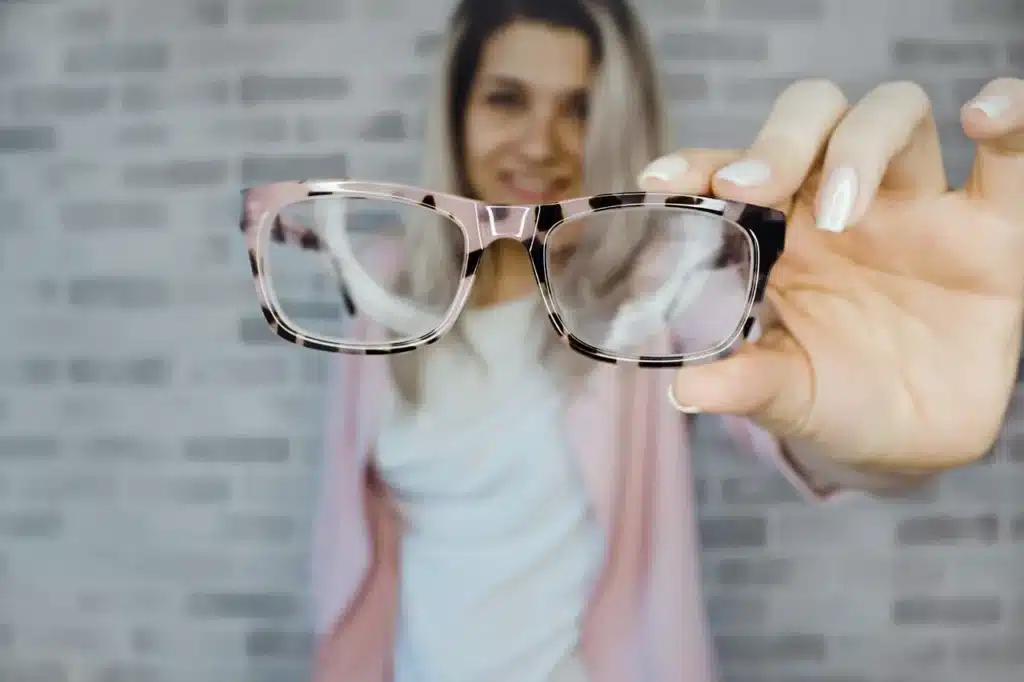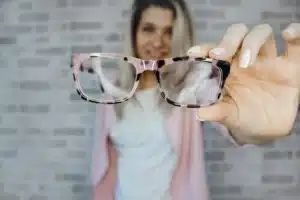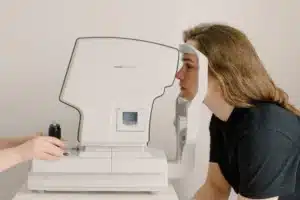What do the cornea, lens, pupil, iris, retina, vitreous humor, and optic nerve all have in common? They make up the anatomy of the eye and work together to give you the gift of sight. Along with your eyelids and tears, you wouldn’t be able to see clearly without these components of the eye.
Let’s be honest, vision plays an enormous role in your ability to live a quality life. Unfortunately, most people don’t maintain and preserve eye health the same way they do other parts of the body — such as the brain, heart, legs, arms, stomach, etc. It doesn’t get the same attention.
That needs to change. Your eyes deserve to be put in a position to succeed long-term and that means properly caring for them on a daily, weekly, monthly, and yearly basis. It could be the difference between living a quality life and one that constantly falls short of your expectations.
Tips to Keep Your Eyes Healthy
If you’re interested in keeping your eyes healthy long-term, there are a variety of things you should be doing on a regular basis. Don’t worry, we’re going to detail some of the most prominent ways to maintain eye health and put your vision in a position to succeed.
Understand the Warning Signs of Eye or Vision Problems
One of the most important things you can do for your eye health is understanding the warning signs of some of the most common vision problems. Many people are living with vision issues without knowing it and the longer you go without the right treatment, the worse those issues can get.
Some of the most common symptoms include spots in your vision, difficulty seeing at near or far distances, double vision, cloudy vision, dry eyes, red eyes, light sensitivity, floaters, flashes, excessive tearing, and blurred vision. If you’re experiencing any of these, visit an eye doctor.

Eat a Balanced Diet
Much like any other organ in your body, your eyes require the right nutrients to function properly. That means a healthy diet can do a lot in preventing eye or vision problems from developing. Of course, eating a healthy diet helps your body in a variety of other ways, too.
Some of the nutrients that help you optimize eye health include omega-3 fatty acids, Vitamin A, lutein, zeaxanthin, Gamma-linolenic acid, zinc, Vitamin C, and Vitamin E. You should be eating plenty of green leafy vegetables, citrus fruits, nuts, fatty fish, lean meat, eggs, and dairy foods.
Develop a Regular Exercise Routine
This might not be the most exciting thing in the world, but staying committed to a regular exercise routine is important to your eye health — among other benefits. There’s a reason your doctor — whether it’s your primary doctor or eye doctor — always recommends regular exercise.
It not only helps you maintain overall health but lowers your risk of experiencing high blood sugar levels, high blood pressure, high cholesterol levels. Believe it or not, these are all things that can negatively impact your eye health, so don’t take a good workout for granted.
Minimize Time In Front of the Computer Screen
Most of us spend the majority of our day in front of a computer or staring at our mobile devices. While this has become a habit in most people’s lives, it’s always best to practice moderation. Too much screen time can be damaging to the eyes and result in a variety of other concerns.
Some tips to help you minimize the risk include making sure your glasses prescription is up to date, getting computer glasses, keeping the top of the screen level with your eyes, avoiding glare, sitting in a comfortable chair that keeps your feet flat, and taking small breaks frequently.
Wear Sunglasses Outside
Although many of us wear sunglasses often — whether it be for protection or for style — it’s not a habit in everyone’s day-to-day routine. Unfortunately, too much exposure to the sun’s ultraviolet (UV) rays can damage the eyes and lead to a variety of vision concerns over time.
For example, UV exposure increases your risk of developing cataracts or experiencing macular degeneration. To reduce your risk, you should be wearing sunglasses that block 99% to 100% of both UVA and UVB rays. Wraparound lenses are best, while polarized lenses are less effective.
Wear Safety Glasses & Eye Protection
In addition to sunglasses, which protect you from UV rays, you should also protect your eyes by wearing safety glasses whenever necessary. This includes whenever you’re using hazardous or airborne materials, playing sports, or anything else that might put your eyes at risk.
Safety glasses and protective goggles not only prevent eye injury, but it reduces your chances of small objects getting in your eye. If you don’t already own a pair of safety eyewear, you should invest in one to keep around the house at all times — your eyes will appreciate it!
Visit Your Eye Doctor for a Regular Eye Exam
The final and most important tip we have when keeping your eyes healthy is scheduling a regular visit with your eye doctor. A comprehensive dilated eye exam can do a lot in detecting eye problems in their early stages, which allows for the best and most effective treatment plan.
Your eye doctor can also monitor your family medical history to determine if you’re at a higher risk of experiencing certain vision problems. Keeping an eye on these concerns will keep you out of harm’s way and allow for quick action when a treatment plan is necessary.
Maintain Your Eye Health With Milwaukee Eye Surgeons
If it’s been a while since you last visited an eye doctor for a regular eye exam or if you’re experiencing some eye issues, time is of the essence. Don’t wait for problems to arise or for problems to get worse than they already are — schedule a visit with Milwaukee Eye Surgeons today!
At Milwaukee Eye Surgeons , there’s nothing we love more than helping you maintain your eye health long-term. We put your eyes in a position to succeed and preserve your vision for as long as possible!






